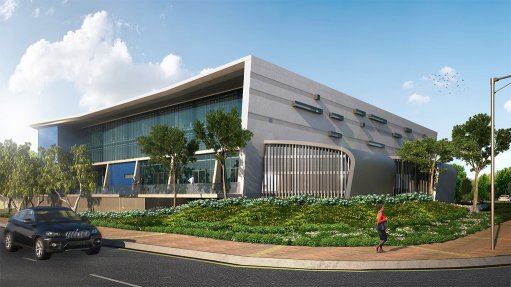IAEA supports idea of a nuclear-sector network in South Africa
The basic idea behind the creation of a nuclear network in South Africa is to prevent the country developing a mess of overlapping bilateral and multilateral cooperative agreements between institutions, as a result of ad hoc, or narrowly focused arrangements. Under such a “spaghetti” set up, not all the collaborative agreements would be visible, or accessible, to all actors in the nuclear sector. Wasteful duplication of effort would result. So explains International Atomic Energy Agency (IAEA) knowledge management specialist Ugochukwu Ugbor.
“A network is just to ensure the horizontal integration of stakeholders so that you don’t have the reinvention of the wheel all the time,” he points out. “They ensure that the sector’s human capacity requirements are well understood and that the necessary stakeholders are on board, and that, for example, nuclear education happens in a sustainable manner. Such networks are already functioning elsewhere, at the national and regional levels. There is no fixed model to follow. This has happened in many countries.”
Such networks are particularly important in ensuring maximum efficiency in education and skills development, as well as research. Countries that already have such networks include Belgium, Japan and the UK. Thus, there is the Japan Human Research Network and the UK’s Nuclear Technology Education Consortium. “For my section [in the IAEA], one of the main foci is networking to ensure that resources are used in the best possible way,” he notes. (Ugbor works in the nuclear knowledge management section of the Department of Nuclear Energy of the IAEA.)
Ugbor attended and was one of the speakers at the recent workshop to plan the creation of a network for nuclear education, science and technology in South Africa, that was hosted by the North-West University, in Potchefstroom, the North West. His presentation was concerned with the creation of what the IAEA calls a Nuclear Education, Science and Technology (NEST) network, citing lessons learnt in other countries. “A national NEST is really a committee of stakeholders,” he stated. These would include academia, research and development institutions, technical schools, a country’s atomic energy commission (or equivalent), the national nuclear regulatory authority, industry and government.
Such a national NEST would, among other benefits, widen cooperation between academia and industry. He pointed out that a nuclear energy programme required the development of many competencies and not just of nuclear engineers. There was no fixed time scale or method of creating a national NEST. “This is going to go as fast as you would like to take it.”
Moreover, a South African NEST would be able to plug into similar organisations at the regional, continental and global levels. Most immediately, it would be able to hook up with AFRA-NEST – the IAEA’s African Regional Cooperative Agreement Network for Education, Science and Technology. “National NESTs and AFRA-NEST: we want to see these networks interconnect,” he highlighted. “Problems, as much as possible, should be solved at the national level.” But if that was not possible, such interconnections would make it easy (and quick) to access international expertise.
AFRA-NEST was conceived of in 2007 at the AFRA Ministerial Conference at Aswan, Egypt, but actually came into existence only in 2013 when its first General Assembly was held at Arusha, Tanzania. It is administered by a high-level steering committee. “We want to see this momentum continuing forward,” he said.
AFRA-NEST’s high priority areas are human health, nuclear applications, sustainable energy development and safety and security. It already has working groups on human health, human resource development and research reactors (a number of African countries operate research reactors, in addition to South Africa). “We must prioritise,” cautioned Ugbor. “We cannot implement everything at one go.”
Comments
Announcements
What's On
Subscribe to improve your user experience...
Option 1 (equivalent of R125 a month):
Receive a weekly copy of Creamer Media's Engineering News & Mining Weekly magazine
(print copy for those in South Africa and e-magazine for those outside of South Africa)
Receive daily email newsletters
Access to full search results
Access archive of magazine back copies
Access to Projects in Progress
Access to ONE Research Report of your choice in PDF format
Option 2 (equivalent of R375 a month):
All benefits from Option 1
PLUS
Access to Creamer Media's Research Channel Africa for ALL Research Reports, in PDF format, on various industrial and mining sectors
including Electricity; Water; Energy Transition; Hydrogen; Roads, Rail and Ports; Coal; Gold; Platinum; Battery Metals; etc.
Already a subscriber?
Forgotten your password?
Receive weekly copy of Creamer Media's Engineering News & Mining Weekly magazine (print copy for those in South Africa and e-magazine for those outside of South Africa)
➕
Recieve daily email newsletters
➕
Access to full search results
➕
Access archive of magazine back copies
➕
Access to Projects in Progress
➕
Access to ONE Research Report of your choice in PDF format
RESEARCH CHANNEL AFRICA
R4500 (equivalent of R375 a month)
SUBSCRIBEAll benefits from Option 1
➕
Access to Creamer Media's Research Channel Africa for ALL Research Reports on various industrial and mining sectors, in PDF format, including on:
Electricity
➕
Water
➕
Energy Transition
➕
Hydrogen
➕
Roads, Rail and Ports
➕
Coal
➕
Gold
➕
Platinum
➕
Battery Metals
➕
etc.
Receive all benefits from Option 1 or Option 2 delivered to numerous people at your company
➕
Multiple User names and Passwords for simultaneous log-ins
➕
Intranet integration access to all in your organisation


















